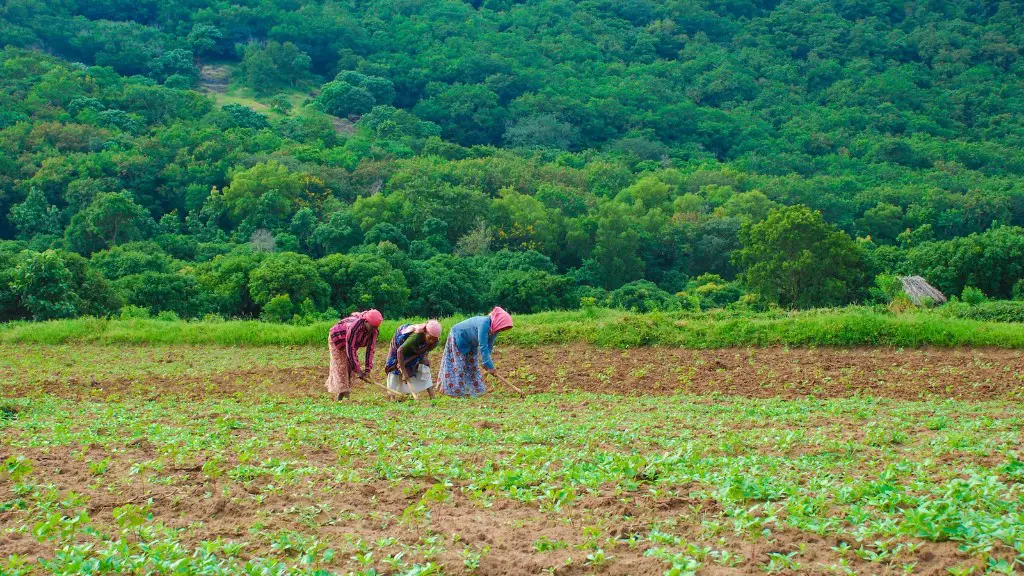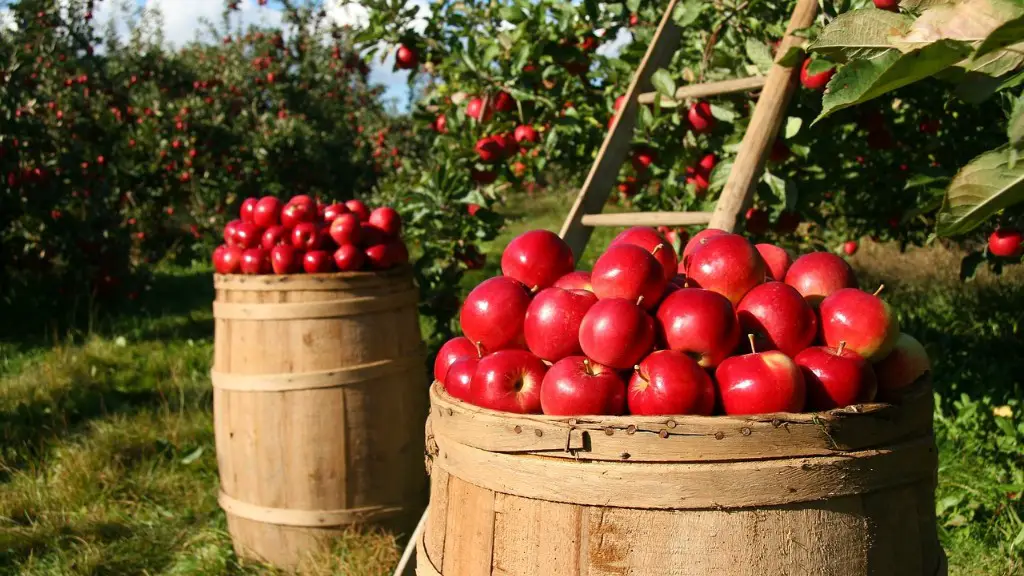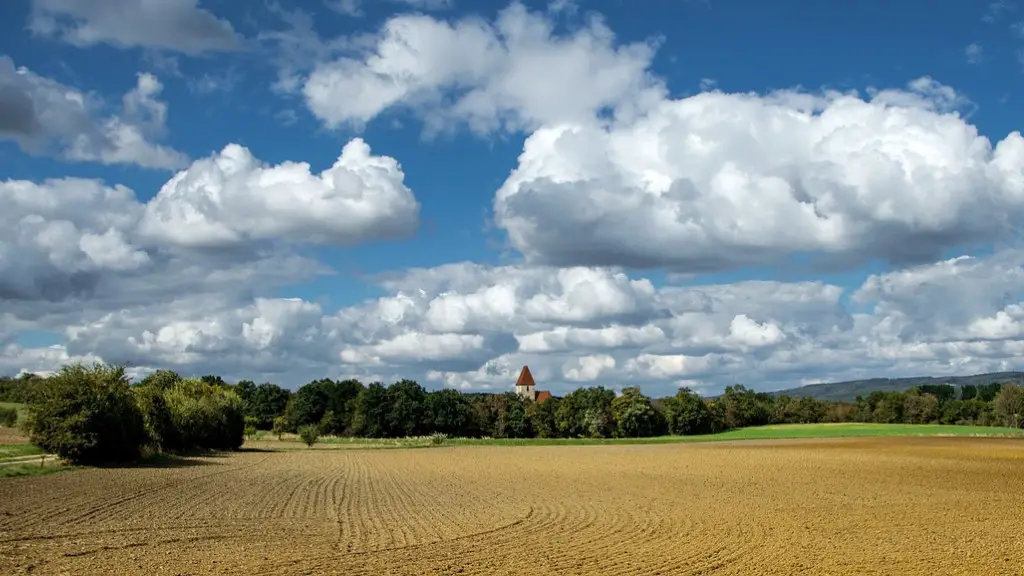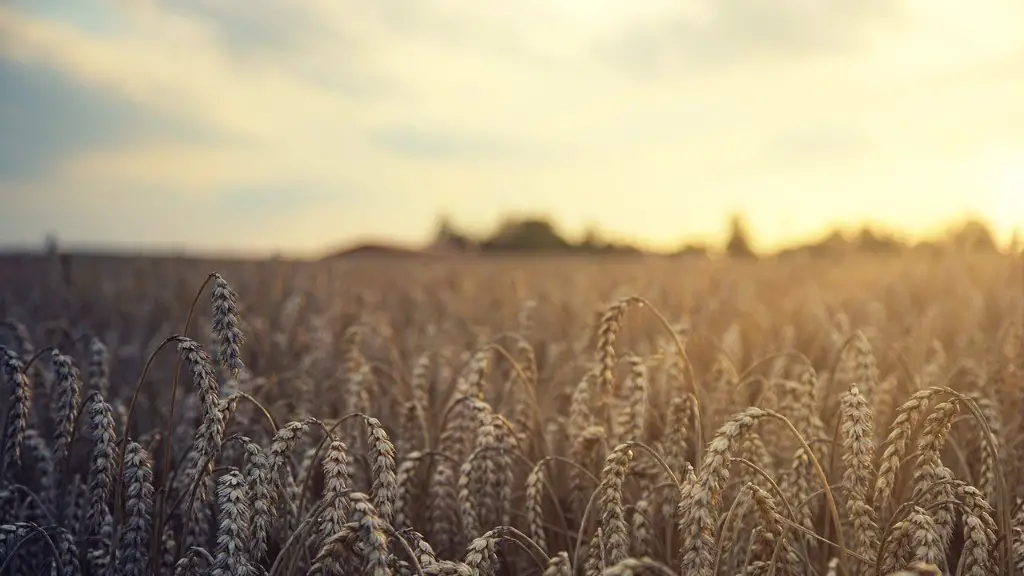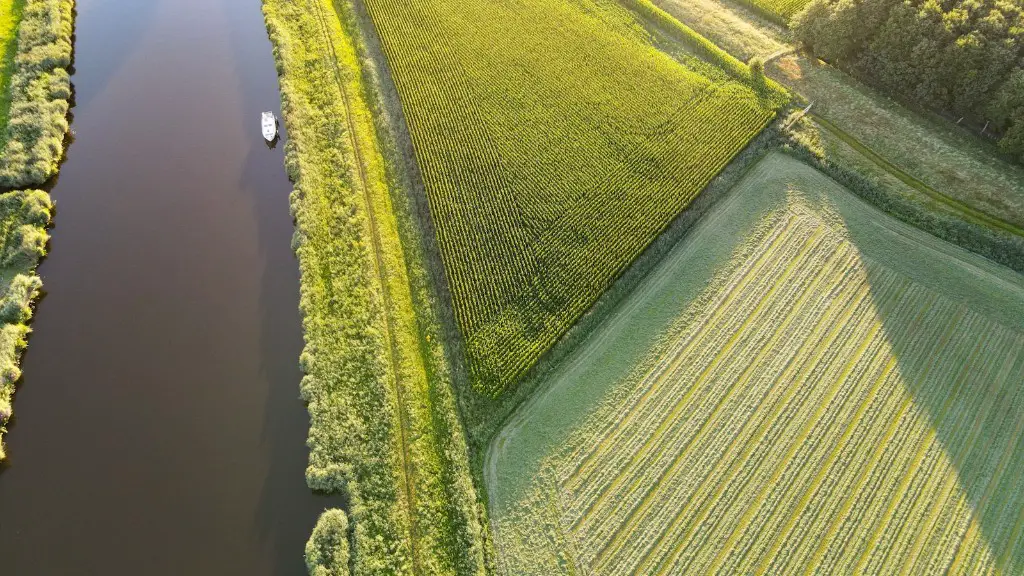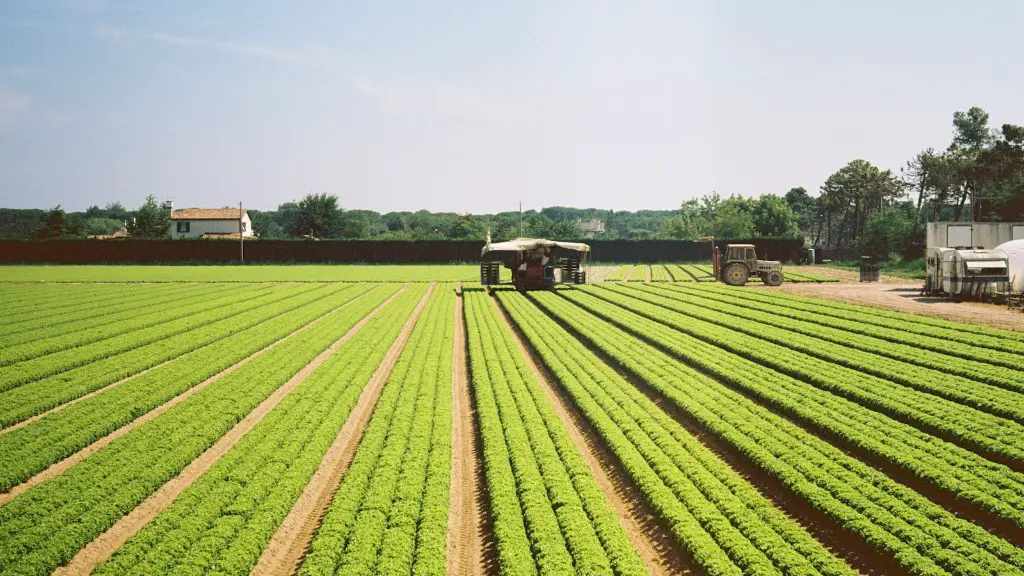Biotechnology is the collection of techniques used to manipulate living organisms for a desired result. In agriculture, this often takes the form of developing crops that are resistant to herbicides or pests, or that can improve yields.
Biotechnology in agriculture is the use of living organisms or their products to modify plants or animals for specific agricultural purposes.
What is meant by biotechnology in agriculture?
Agricultural biotechnology is a powerful tool that can be used to improve crops and animals. It can be used to develop new and improved varieties of plants and animals that are more resistant to disease and pests, and that can better tolerate environmental stresses. Biotechnology can also be used to develop new methods of producing food, feed, and other agricultural products.
Biotechnology has revolutionized agriculture, with farmers now able to grow more food with fewer inputs. Here are five examples of how biotechnology is being used in agriculture today:
1. Genetically modified crops. Genetically modified crops have been engineered to be resistant to herbicides, pests, and disease. This means that farmers can use less chemical inputs and still produce a high yield.
2. Developing of biofuels. Biofuels are an alternative to fossil fuels, and can be made from agricultural waste products like corn stalks and soybean husks.
3. Improving plant growth. Farmers are using biotechnology to develop crops that grow faster and have a higher yield.
4. Improving plant seed quality. Biotechnology is being used to develop seeds that are more resistant to disease and pests.
5. Improve animal health and breeding. Biotechnology is being used to develop vaccines and pharmaceuticals for animals.
Why is agricultural biotechnology important
Agricultural biotechnology can help to boost food production in both the developed and the developing worlds. It can help to reduce vulnerability to pests, viruses, and drought, and can also help to improve the nutritional quality of food crops. Agricultural biotechnology is an important part of the world’s effort to combat food insecurity and malnutrition.
Medical biotechnology is the use of living cells and cell materials to research, develop, and produce pharmaceutical and diagnostic products that help to improve the health of humans and animals. Agricultural biotechnology is the use of techniques such as genetic engineering, gene splicing, and molecular markers to modify crops and livestock to make them more resistant to pests and diseases, and to improve their growth and yield. Industrial biotechnology is the use of microorganisms to produce chemicals and other products for industry, such as enzymes, vitamins, and organic acids. Marine biotechnology is the use of marine resources to develop products and applications for the marine environment, such as fish farming, aquaculture, and bioremediation. Food biotechnology is the use of biotechnology in the food industry, including the development of new food products, food processing, and food safety. Environmental biotechnology is the use of biotechnology to develop products and processes that help to clean up the environment, such as waste treatment and pollution control.
What are 5 biotechnology examples?
Biotechnology is a field of science that involves the use of living organisms to create or modify products for specific purposes. Key applications of biotechnology include DNA profiling, DNA cloning, transgenesis, genome analysis, stem cells and tissue engineering. These techniques have revolutionized the fields of medicine, agriculture and food production, and have the potential to continue to do so in the future.
Biotechnology is a field of science that utilizes living cells and cellular materials to create pharmaceutical, diagnostic, agricultural, environmental, and other products to benefit society. It can also be used to study and alter genetic information in animals so that human diseases can be modeled and studied.
What are the most widely grown biotech crops?
GMO crops are grown in the United States, but some of these GMOs make up a large percentage of the crop grown (eg, soybeans, corn, sugar beets, canola, and cotton).
The development of insulin, the growth hormone, molecular identity and diagnostics, gene therapies and vaccines such as hepatitis B are some of the milestones of biotechnology and its alliance with genetic engineering. These advances have greatly improved the quality of life for people with diabetes, growth disorders and other conditions. They have also paved the way for more sophisticated treatments, such as personalized medicine.
How is biotechnology used in plants
These biotechnologies have played a vital role in the advancement of plant science research. By allowing researchers to map genes and discover their functions, they have made it possible to select for specific genes in breeding programmes and to transfer genes for desired traits into plants. This has led to great strides being made in the improvement of crop productivity and quality.
Many farmers choose to grow biotech crops because they increase yield and lower production costs. This allows farmers to get a greater financial return while using more environmentally friendly farming practices. Agricultural biotechnology has been shown to be an effective way to increase crop yields while reducing the amount of chemicals and pesticides used in farming.
What are 3 benefits of biotechnology?
Biotechnology refers to the use of living organisms to create products or perform tasks. It has been used for thousands of years, with the earliest examples being fermentation (such as of beer and wine) and cheese making. More recently, biotechnology has been used to create medicines, and to improve crops.
Biotechnology has the potential to provide many advantages, especially in three broad categories: environmental protection, higher yields, and improvements in human health.
For example, biotechnology can be used to create more efficient and environmentally friendly methods of manufacturing, to clean up pollution, and to develop new medicines and therapies. It can also be used to improve crop yields, making them more resistant to pests and to climate change. And finally, biotechnology can be used to develop new treatments for diseases, and to improve our understanding of the human body.
While biotechnology holds great promise, it is also important to remember that it comes with some risks. For example, there is the potential for accidental release of harmful organisms, and for misuse of powerful technologies. But if these risks can be managed, biotechnology has the potential to make a real difference in the world.
Biotechnology is defined as the use of living systems and organisms to develop or make useful products. Brewing and baking are two processes that use biotechnology. In brewing, yeast is used to produce beer and other alcoholic beverages. In baking, yeast is used to make bread and other baked goods.
What are the 2 main fields that biotechnology is used in
Biotechnology is the use of living systems and organisms to develop or make products, or “any technological application that uses biological systems, living organisms or derivatives thereof, to make or modify products or processes for specific use” (UN Convention on Biological Diversity, Art. 2).
Modern biotechnology encompasses a wide range of different techniques and applications, and its use and commercialization falls into four main fields: environment, medicine, industry and agriculture.
Environmental biotechnology is concerned with developing sustainable environmental practices that reduce pollution and waste. It includes the use of microorganisms for bioremediation (cleaning up contaminated sites), and the production of environmentally friendly products such as biofuels.
Medical biotechnology is used to develop treatments and cures for diseases and disorders. This includes the use of genetic engineering to modify cells and create therapies for conditions like cancer, and the use of antibodies and other proteins to target and destroy specific pathogens.
Industrial biotechnology is used to produce and improve industrial products and processes. This includes the use of enzymes for making biofuels, and the development of more efficient and environmentally friendly manufacturing processes.
Agricultural biotechnology is used to improve crops and livestock. This includes the use of genetic engineering to create
Biotechnology is a field of science that involves the manipulation of living organisms to produce new or improved products. It has a wide range of applications in different industries, including healthcare, agriculture, and environmental protection.
In healthcare, biotechnology is used to develop new treatments and therapies for diseases. In agriculture, it is used to develop new crop varieties that are resistant to pests and diseases. In environmental protection, it is used to develop new technologies for cleaning up contamination and reducing greenhouse gas emissions.
Biotechnology has the potential to make a significant impact on the world. It can help to improve human health, increase crop yields, and protect the environment.
What is the most common biotechnology?
Biotechnology is the use of living cells and organisms to create or improve products. The most prominent area of biotechnology is the production of therapeutic proteins and other drugs through genetic engineering. Other areas of biotechnology include the production of food and chemicals, the development of new fuels, and the cleanup of environmental hazards.
The application of biotechnology has certainly had some unintended negative consequences, such as the loss of biodiversity as well as environmental contamination. However, it is important to remember that biotechnology has also produced many benefits for humanity, such as new and improved medical treatments, more efficient and environmentally friendly agricultural practices, and the development of cleaner energy sources. Overall, the benefits of biotechnology outweigh the negative consequences, but we must be vigilant in monitoring and regulating its applications to ensure that negative consequences are minimized.
Warp Up
Biotechnology in agriculture is the use of technology to improve or modify agricultural products. This can be done through the use of genetically modified organisms (GMOs), or through the use of other technologies such as gene editing.
Biotechnology in agriculture is the use of science and technology to improve the productivity of agriculture. It can be used to improve the quality of crops, to improve the yield of crops, and to reduce the cost of production.
